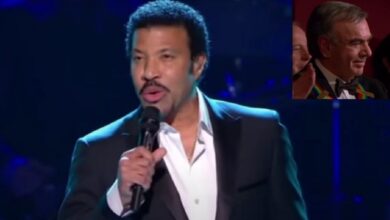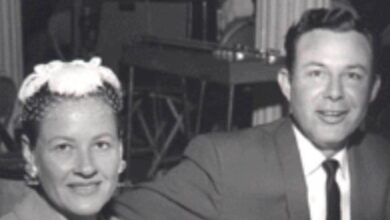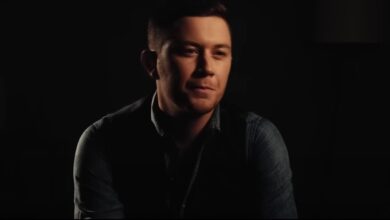His Roar Weakened Like An Old Lion, But He Stayed A Lion; Johnny Cash Stirred Respect, Love, Sadness, Admiration
Johnny Cash’s final live performance, held on July 5, 2003, at the Carter Family Fold in Hiltons, Virginia, stands as a deeply poignant and significant event in the history of country music. This performance occurred just two months before Cash’s death, highlighting both his enduring spirit and the profound impact of his music on his audience.
At the time of this final concert, Cash was frail and reliant on a wheelchair, a testament to the physical challenges he faced. Despite these difficulties, he delivered a heartfelt 30-minute set that captured the essence of his remarkable career. This performance was notable for its emotional depth, resonating with fans as a powerful farewell from one of the genre’s most iconic figures.
The setlist for this final performance was a carefully curated selection of Cash’s most beloved songs. Included were classics such as “Folsom Prison Blues,” “I Walk the Line,” “Sunday Mornin’ Comin’ Down,” “Ring of Fire,” “Angel Band,” “Big River,” and “Understand Your Man.” Each of these songs carried significant weight, reflecting Cash’s extensive career and personal experiences. Particularly poignant was the inclusion of “Ring of Fire,” which Cash dedicated to his late wife, June Carter Cash, who had passed away just two months prior. This dedication added a layer of emotional resonance, reflecting the deep personal connection between Cash and Carter.
The performance was imbued with a sense of reflection and tribute. Cash’s voice, though shaky, retained the distinctive depth and resonance that had defined his career. Accompanied by guitarist Jerry Hensley and bassist Bobby Starnes, the music was both intimate and evocative, underscoring the emotional weight of the performance. The audience, aware of the historical significance of the moment, was deeply moved by the experience, adding to the performance’s emotional impact.
Johnny Cash’s final concert was more than just a musical event; it was a testament to his unwavering passion for his craft and his enduring connection with his fans. Despite his physical limitations, Cash’s dedication to his music and his ability to convey profound emotions were evident throughout the performance. It served as a fitting and heartfelt conclusion to his illustrious career, showcasing his resilience and continuing influence on the genre.
Born on February 26, 1932, in Kingsland, Arkansas, Johnny Cash’s career spanned several decades, during which he became one of the most influential figures in country music. Known for his distinctive deep voice and rebellious persona, Cash’s music often explored themes of struggle, redemption, and resilience. His notable hits include “I Walk the Line,” “Folsom Prison Blues,” “Ring of Fire,” and “Hurt,” among many others. Cash’s impact on country music is immeasurable, with his contributions helping to shape the genre and influence countless artists.
Throughout his career, Cash was known for his distinctive style and innovative approach to music. His rebellious attitude and deep, resonant voice set him apart from his contemporaries, while his ability to blend traditional country sounds with elements of rock and folk helped to expand the genre’s boundaries. His work with producer Rick Rubin in the late 1990s and early 2000s, including the acclaimed *American Recordings* series, introduced his music to a new generation and further solidified his legacy as a pioneering and enduring artist.
Cash’s final performance at the Carter Family Fold remains a powerful reminder of his enduring talent and his deep connection to his audience. It was a fitting tribute to a career that had a profound impact on country music and popular culture, marking the end of an era while celebrating the lasting influence of one of music’s greatest legends.





